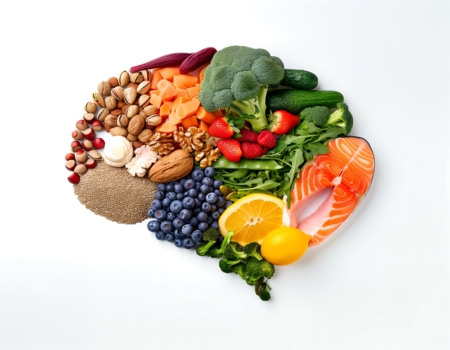The Link Between Obesity, Nutrition and Colon Cancer
The recent passing of actor Chadwick Boseman after a three year long battle with colon cancer at the young age of 42 sheds some light on the reality of the disease. Colon cancer is the third leading cause of cancer-related deaths in the United States, and the lifetime risk of developing colon cancer is about 1 in 23 for men and 1 in 25 for women.
There is overwhelming evidence that higher amounts of body fat are associated with an increased risk of developing colon cancer. Genetics also play a key role in the development of the disease. Additionally, experts are finding that what we eat and how much we exercise may play an even larger role than previously thought.An article by the Harvard Medical School offers some important tips on what we can do to help lower the risk of developing colon cancer:
1.) Cut back on red and processed meat.
Some studies have shown that there is an increased risk of developing colon cancer among those who eat a lot of red meat such as beef and pork. There is an even greater risk to those who eat processed meat such as bacon, ham, sausage, or hot dogs. Studies have found that the heme iron that red and processed meats contain promotes cell division and cancerous growth. Instead of consuming red meat, try substituting fish, chicken or turkey as your main source of protein and experiment with beans for additional protein, fiber, and vitamins. If you must consume red meat, stick with very lean cuts, grass fed meat and only consume once a week.
2.) Stay active.
Regular physical activity can reduce your risk of developing colon cancer by 50 percent. The American Cancer Society recommends that adults get at least 150 minutes of moderate intensity or 75 minutes of vigorous activity each week. Building moderate activity into your lifestyle can be as easy as a brisk walk for 30 minutes every day. You can even add some variety to your walks by increasing your speed or adding hills. Jogging, swimming, or biking are other great ways to add moderate exercise into your lifestyle.
3.) Increase calcium and vitamin D intake
According to the American Cancer Society, higher levels of vitamin D in the blood are associated with a lower risk for getting colon cancer. A 2018 study found that people who were deficient in vitamin D had a 31% higher risk of developing the disease.People can get vitamin D naturally from the food they eat. Foods rich in vitamin D include fatty fish such as salmon and tuna, milk (including almond and soy milk), eggs and mushrooms. Spending just 10 minutes in the sun per day can also help increase your vitamin D levels.
4.) Get screened regularly
Getting regular screenings for colon cancer can help find growths in the colon before they turn cancerous. Early detection greatly increases the chances for successful treatment. Although colon cancer is more common in older adults, the rate at which people are being diagnosed with colon cancer has been rising steadily over the years. According to the American Cancer Society, 12% of colon cancer cases will be diagnosed in people under the age of 50, which translates to about 18,000 cases. Therefore, The American Cancer Society recently dropped the recommended screening age from 50 to 45. Chadwick Boseman was just 43 years old. We hope that his death at such a young age will shed a new spotlight on the growing number of younger people being diagnosed with colon cancer.
Sources:
https://www.cdc.gov/cancer/colorectal/statistics/index.htm
https://www.cancer.org/cancer/colon-rectal-cancer/causes-risks-
https://www.health.harvard.edu/newsletter_article/how-to-lower-your-risk-for-colon-cancer




